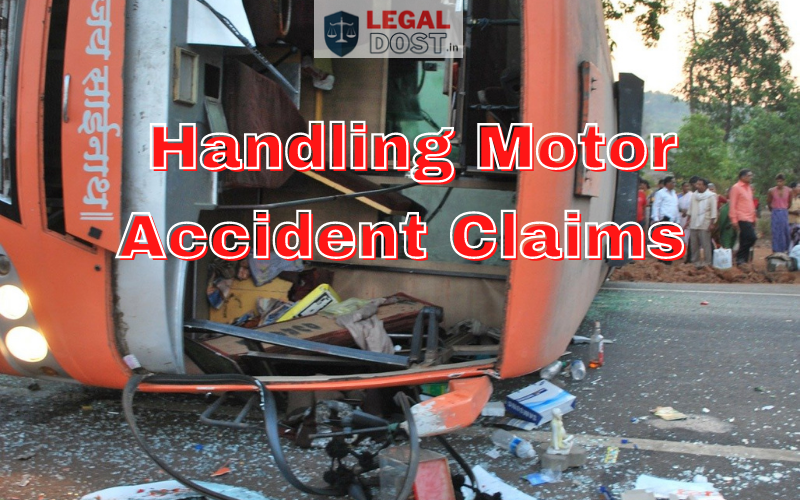India is a developing country with an ever-increasing population and an ever-growing number of vehicles. As a result, motor accident claims are on the rise. Handling such claims involves understanding the legal system in India, and the nuances of the various laws related to motor accidents.
The Motor Vehicles Act, 1988 is the primary law governing motor accident claims in India. This law defines the liabilities of the owner of the vehicle, the insurance company, and the driver of the vehicle in case of an accident. Additionally, this law also sets out the procedure for filing and resolving motor accident claims.
Who can File a Motor Accident Claim?
Under the Motor Vehicles Act, 1988, the following individuals can file a motor accident claim:
• The owner of the vehicle
• The driver of the vehicle
• The family of the deceased (in case of death due to the motor accident)
• The passengers traveling in the vehicle
• The owner of the property was damaged due to the motor accident
• The third party (if any)
What are the Documents Required for a Motor Accident Claim?
In order to file a motor accident claim, the following documents are required:
• The registration certificate of the vehicle
• The driving license of the driver
• The insurance certificate of the vehicle
• Photos of the accident scene
• The accident report filed by the police
• Medical documents, if any
• The FIR filed by the police
Procedure for Filing a Motor Accident Claim
The following is the procedure for filing a motor accident claim in India:
• File a police complaint: The first step is to file a police complaint with the local police station. The police will then investigate the matter and file an FIR.
• File a claim with the insurance company: The second step is to file a claim with the insurance company of the vehicle. The insurance company will then investigate the claim and decide whether to provide compensation or not.
• File a lawsuit: If the insurance company refuses to provide compensation, then the claimant can file a lawsuit in the court of law. The court will then hear the case and decide whether to provide compensation or not.
Time Limit for Filing a Motor Accident Claim
Under the Motor Vehicles Act, 1988, a motor accident claim must be filed within a period of three years from the date of the accident. Failure to do so can result in the claim being barred from the courts.
Statutory Insurance Cover
Under the Motor Vehicles Act, 1988, all vehicles must have a statutory insurance cover of at least Rs. 5 lakhs. This insurance cover is applicable in the event of death of the owner or driver of the vehicle, or in the event of any damage to any third party.
No-Fault Liability
Under the Motor Vehicles Act, 1988, the owner of the vehicle is liable for any damages caused to any third party due to the negligence of the driver of the vehicle. This is known as the no-fault liability principle and is applicable in the event of any motor accident.
Compensation Awards
The courts may award compensation to the claimant based on the severity of the damage caused due to the motor accident. The compensation amount may vary depending on the facts and circumstances of the case.
Conclusion
It is important to understand the legal system in India and the nuances of the Motor Vehicles Act, 1988, in order to successfully handle motor accident claims. The procedure for filing a motor accident claim is quite complex and requires the assistance of an experienced lawyer.
It is also important to note that motor accident claims can take a long time to resolve. It is therefore important to be patient and to consult with a lawyer in order to ensure that the claim is handled in the most efficient and effective manner possible.
Motor accident claims in India can be complex and require the assistance of an experienced lawyer. It is important to understand the legal system in India and the nuances of the Motor Vehicles Act, 1988 in order to successfully handle motor accident claims. Additionally, it is also important to file the claim within the stipulated time frame and to provide all the necessary documents in order to ensure that the claim is handled in the most efficient manner possible.
Bibhu Mishra is a prolific writer who has published many books spanning various genres. He is a legal enthusiast and an avid researcher of cutting-edge technology, diving into fascinating realms to bring captivating narratives to life.

